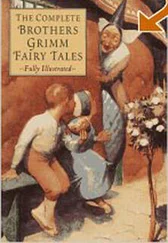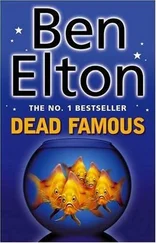Stone didn’t care about wages. He had thoughts only for the shocking revelation that Dagmar was an officer of the Stasi.
And yet was it so shocking? The war had changed them all so much. Were he to go back in time and look at his own carefree, soccer-mad, rebellious pre-war self, he would surely not have predicted the journey that boy would take. That at the end of it he would find himself fading to grey behind a desk in Whitehall, doing his long weary penance for surviving.
Dagmar would scarcely recognize the man he had become. Would he recognize her?
Stone made his way through the fine red-tiled entrance of the nineteenth-century tube station, declining the offer to buy a first edition Standard . The news was the same as the day before anyway. The aftermath of the Suez debacle still dominated the front pages with its ongoing humiliation of Britain at the hands of Eisenhower and the US State Department, not to mention Nasser himself. The UK was finished, Egypt was in the ascendant and all over the Middle East Arabs were flexing their muscles.
There was Lonnie Donegan music playing through the open window of one of the flats that sat above the station entrance. Usually Stone quite liked Lonnie Donegan, except for the stupid one about chewing gum and bedposts. He liked skiffle in general because it was scruffy and disrespectful of authority. Now, however, he found it irritating. He found the chatter of girls in front of him on the stairs irritating. And the platform announcements too.
He was trying to think.
Dagmar had said in her letter that she’d been in a Soviet gulag. That made grim sense. The Russians had imprisoned hundreds of thousands of recently liberated innocents after the war, however much the craven apologists of the London Left might try to deny or excuse it.
Dagmar was, after all, a bourgeois Jew. Two strikes against her in Stalin’s book.
But that had been ten years ago. She could not possibly have spent all of the intervening period in a Soviet camp and yet now be a Stasi official. At some point during those years she must have been released and ‘rehabilitated’. And yet only now had she got in contact. Why had she taken so long to try and find him?
And why had she done so now?
The train arrived. Stone found a seat and lit up a Lucky Strike. His father had always loved American cigarettes.
The answer to the first question was obvious. Dagmar had not wanted to resume contact. Association with people from the West would do her no good at all. Particularly a person like himself, an ex-German, living in Britain and working at the Foreign Office. In her position Dagmar would certainly know of these things about him and would understand that association with him was bound to bring suspicion down on her. The fact that MI6 wanted him to contact her on their behalf was chilling enough evidence of that.
So why had she approached him?
The answer to that was so exciting that Stone had scarcely dared acknowledge it, even in his deepest, most private thoughts.
She needed him.
Stone held the cigarette between his teeth and took the letter from his wallet. Written in that still familiar hand, if shakier now, sadder somehow, less optimistic.
When last I saw you, dear friend, at the café at the Lehrter Bahnhof, you held my hand and whispered so that no one, not even your brother, could hear. You whispered that you loved me and that you always would. You promised me that day I would see you again. Will you keep your promise? We are strangers now, of course. But will you come? Perhaps we can find a smile together, over half-remembered happiness from another world and time. Everyone is looking for Moses.
That last line. Everyone is looking for Moses .
It was his mother who used to say it. In the first year of the nightmare. In 1933. People used to come to her and ask for a way out. She was a doctor after all, doctors had the answer to everything. Perhaps even how to get an exit visa. But for all her cleverness and her compassion, Dr Stengel did not know that. She could only smile and whisper gently, Everyone is looking for Moses. Hoping he’ll lead them out of Egypt . She said it so often that first year but less so later and then not at all.
Well, Dagmar had a new Egypt now.
And this time Moses wouldn’t fail her.
Money Gone Mad
Berlin, 1923
PAULUS AND OTTO were playing together on the thick blue English rug which had come from Wolfgang’s parents, while Frieda sat at her little desk bureau looking over the family finances. She had been staring at a particular banknote for a few moments when quite suddenly she began dabbing at her eyes with a handkerchief.
The little boys stopped playing and stared at her for a moment, caught up in the unfamiliar spectacle of their mother’s tears, having imagined up until that point in their lives that crying was their prerogative alone.
‘Don’t cry, Mum,’ Otto pleaded.
‘I’m not, darling. Just an eyelash in my eye, that’s all.’
Frieda blew her nose on a handkerchief and then more urgent issues claimed the boys’ attention as Paulus took the opportunity to steal the parapet from Otto’s fort and add it to his own. Paulus, thoughtful behind deep-set, dark eyes, was already the superior strategist of the two boys, while Otto, although by no means stupid, was wild and impulsive. His impulse now was immediate and violent. He slammed his fat little fist into the side of Paulus’s head and the fight that ensued was only ended when Wolfgang stormed in from the bedroom (where he had been sleeping after a late show) and sprayed the flailing knot of arms and legs and fists and feet with water from a toy pistol. This was a trick he’d picked up in the park from a man who bred dogs.
‘When they brawl, I throw water over them,’ the man had said. ‘They soon learn.’
Wolfgang decided that the same cause-and-effect training might work on his endlessly battling three-year-olds.
‘They’re just a couple of little wild animals, aren’t they?’ Wolfgang argued when Frieda objected to her children being trained like dogs. ‘And you have to admit it works.’
‘It doesn’t work. They just think it’s funny.’
‘I prefer the laughing to screaming.’
Once the twins had been subdued, Wolfgang noticed Frieda’s red eyes.
‘What’s wrong, Freddy?’ he asked. ‘You’ve been crying.’
He sat beside her at her desk, sliding himself on to the piano stool she was using as a chair. ‘Come on, girl, I know times are pretty tough but we’re getting by, aren’t we?’
Frieda didn’t reply. Instead she handed him the banknote, a ten-million-mark one she had the previous day received in part change for a litre of milk.
Scrawled on the note in a naïve, girlish hand were the desperate words: For this very bill I sold my virtue .
Wolfgang frowned and then shrugged.
‘Must have been at least a month ago,’ he said. ‘Even a country girl would want a hundred million for her virginity now.’
‘I hadn’t believed Germany could get any more crazy,’ Frieda said, sniffing back the tears.
‘I suppose when you lose a world war things don’t get back to normal overnight.’
‘It’s been five years , Wolf. I don’t think anybody in Germany has the faintest idea what normal is any more.’
Outside their apartment the clanking of the lift announced its ponderous arrival at their floor.
‘Edeltraud,’ Frieda said with a long-suffering smile.
‘About bloody time.’
‘We need to get her a watch.’
‘We need to give her a kick up the arse.’
Edeltraud was the Stengels’ maid and babysitter. A seventeen-year-old street waif who had wandered into the Community Health Centre where Frieda worked, with her two-year-old daughter on her hip, and simply collapsed on the floor from hunger and exposure. Frieda had fed her, clothed her, managed to find her a place in a hostel and also, for the sake of the giggling little girl at her feet, promised Edeltraud a job.
Читать дальше












